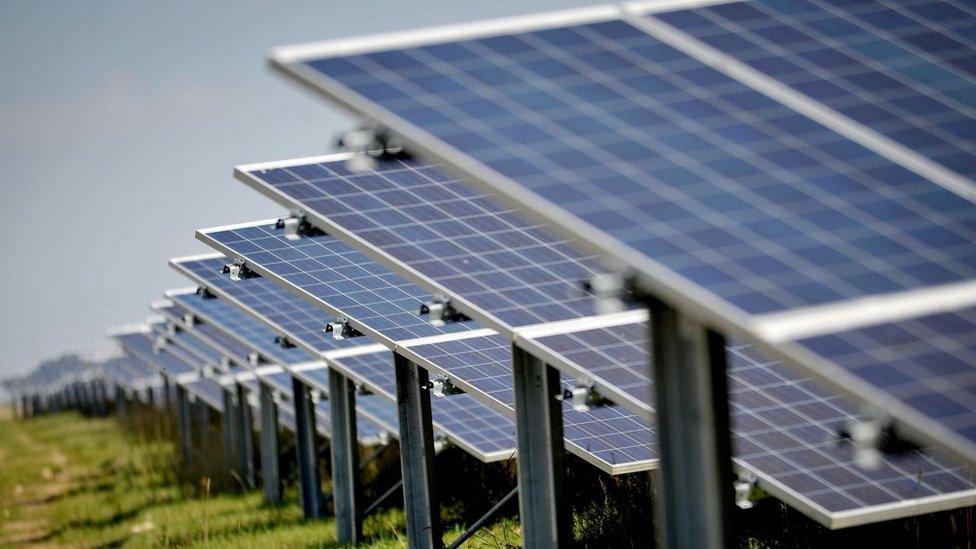Sizewell C: Campaigners argue nuclear power plant decision 'unlawful'
- Published
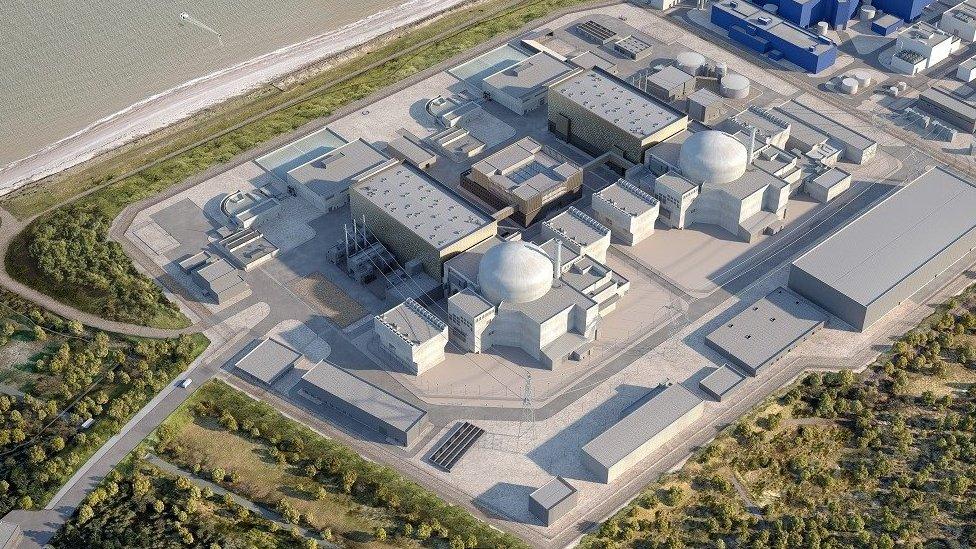
The planned plant is expected to cost about £20bn and would be built just north of the existing Sizewell B plant
A government decision to back the Sizewell C nuclear power plant plan was "unlawful" and should be overturned, campaigners told the High Court.
Last year, Business Secretary Grant Shapps confirmed a £700m government investment in the project on the Suffolk coast.
Protest group Together Against Sizewell C said the government failed to assess possible environmental impacts.
But the government said it made "legitimate planning judgments".
The two-reactor plant, which EDF Energy said would be able to generate 7% of the UK's electricity needs, was approved by the government in July last year, when Boris Johnson was prime minister.
Campaigners have mounted a legal challenge to the development consent granted by Kwasi Kwarteng, who was business secretary at the time.
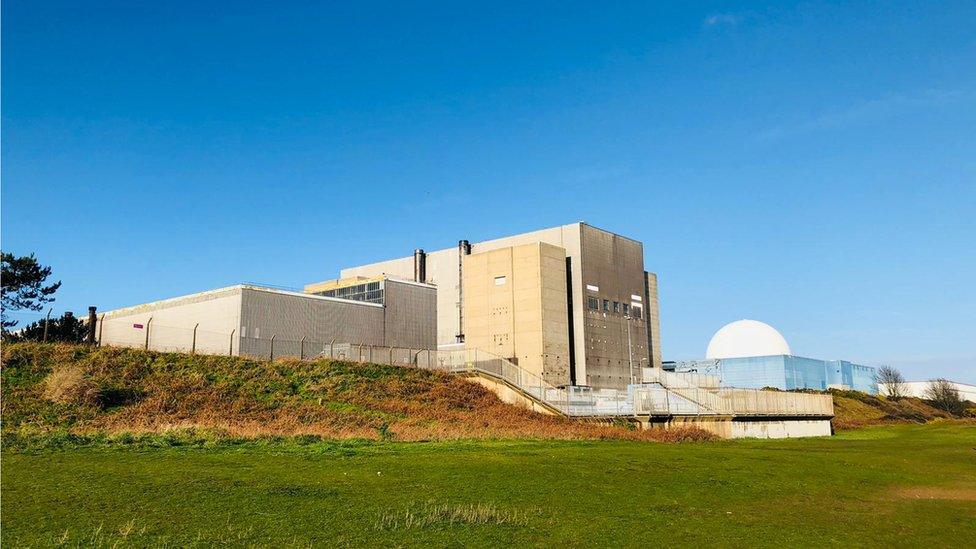
The white-domed Sizewell B is due to stop generating electricity in 2034, while Sizewell A (left) stopped generating in 2006 is in the lengthy process of decommissioning
Their legal team argued the government failed to assess the impact of providing an "essential" water supply to the project and did not consider "alternative solutions" to meeting its energy and climate change objectives.
The group also said the government irrationally concluded the power station site would be clear of nuclear material by 2140, when rising sea levels and storm surges could flood the site before it has been decontaminated.
In written arguments given to the court in London, the government's legal representatives said the campaigners claims were "simply reflecting disagreements" heard during consultation.
They said the government was "lawfully entitled" to conclude that EDF had shown a long-term water supply was "viable in principle" and was "not a barrier to granting consent".
NNB Generation Company (SZC), a subsidiary of EDF, said, again in written arguments, that there was an "urgent need for nuclear new-build".
It said that it had been found in relation to coastal defences "proper mitigation and regulation was in place to address nuclear safety issues".
The hearing before Mr Justice Holgate is due to last two days, with a ruling expected at a later date.

Find BBC News: East of England on Facebook, external, Instagram, external and Twitter, external. If you have a story suggestion email eastofenglandnews@bbc.co.uk, external
Related topics
- Published29 November 2022
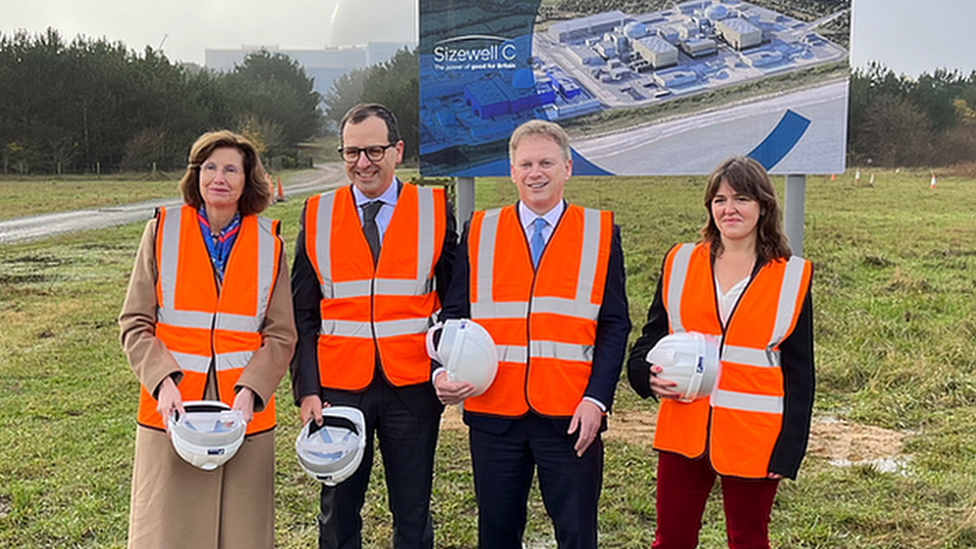
- Published15 June 2022

- Published2 November 2023
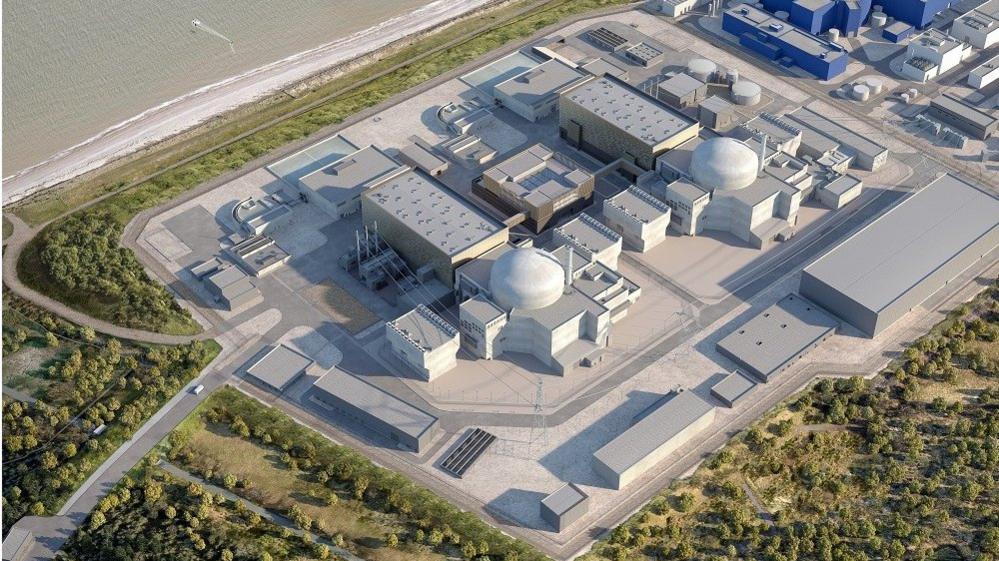
- Published29 October 2022
